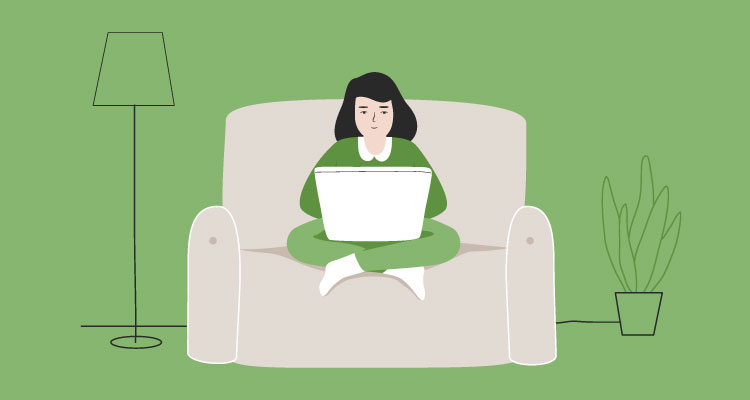Handling and organizing money is essential to your survival and growth as a freelancer. Many people will talk to you about how to increase your freelance rates, or where to look for more work. But how to actually handle the money you’re bringing in? No one really talks about the balance between personal finances and business finances for freelancers.
How you organize the money that you earn, and how you use it to live your life outside of work is probably the most important skill that you can have. Here’s how freelancers can balance business and personal finances.
Set Up a Business Account
The first step for any freelancers, no matter the type of work they’re doing, is to set up a business bank account for themselves. It’s very easy; simply apply for an EIN for free, and then use that to open a bank account for your business income.
Keeping your business and personal finances separate will help you organized from the start. It’s only getting more common to get paid online, having a business account offers some privacy and protection for your personal funds.
Know Your Tax Burden
Taxes have to be paid no matter what. That’s why understanding how much you owe for quarterly taxes and for your annual tax burden throughout the year. It’s very painful to have to pull money out of your personal finances to pay your business tax debt.
You can estimate your quarterly taxes here, and should always make payments. Your freelance business is not a hobby- if you can’t pay for it from the profits of your work you need to reassess how you’re doing business.
Save a percentage of each paycheck for taxes. That way, you’ll keep up with your tax obligation as the year progresses and hopefully never get behind.
Create a Business Plan
When you freelance it’s all too easy to treat it like a hobby and not like a full time job. But this IS your job. Creating a business plan- that is, a plan for how you’ll make money throughout the year- will help guide you through the months.
For example you can say that in 2018 you want to start off with 6 design clients a month for January-June, and then take June and July to focus on collaborations on social media. From August-December you plan to grow your website revenue and social media followings to generate cash from sponsored content.
Write all this down and be as specific as possible. Freelancing comes with feast and famine months. Your business plan will guide you in the famine months.
Your personal finances and business finances should live in different worlds. Focus on making your business profitable and keep it organized, and you’ll see that your personal finances do well.
[Read: How Fintech Can Help You Manage Your Personal Finances]














